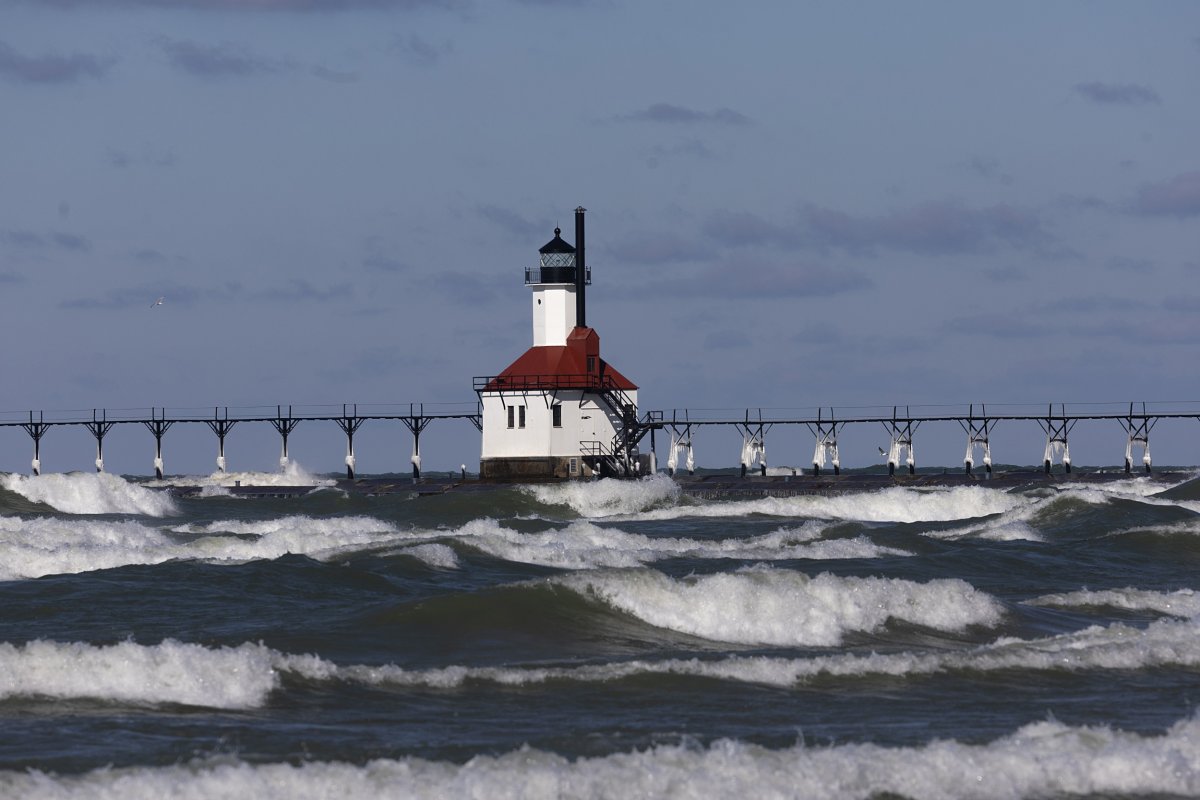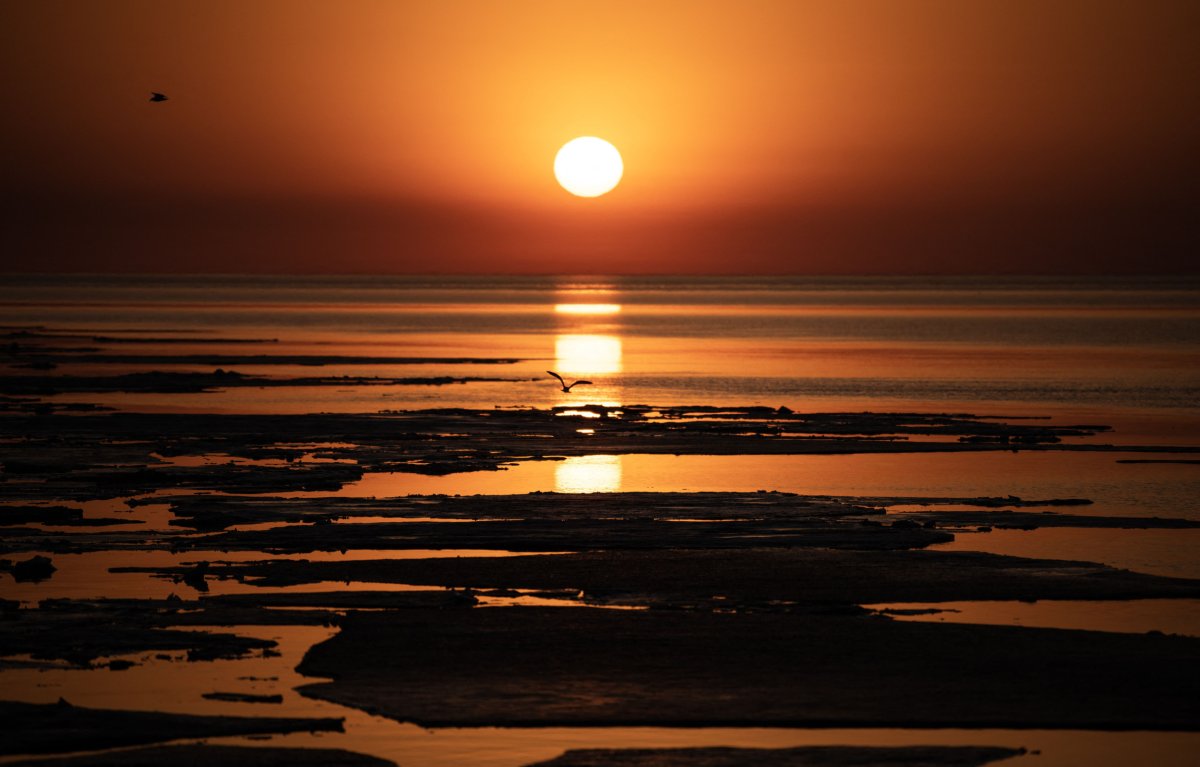Lakes are among the most fascinating geographical features, defined as sizable bodies of standing or slowly moving water contained within inland basins. While the boundaries between lakes, ponds and other water bodies often blur, lakes remain a cornerstone of ecological systems and recreational life across the United States.
Among the most famous in the country are the Great Lakes—Superior, Michigan, Huron, Erie and Ontario. Together, they form the largest group of freshwater lakes globally, holding 20% of the Earth’s surface freshwater and stretching across eight states, including Michigan, Wisconsin and New York.
Beyond these iconic waters, the U.S. boasts a myriad of other lakes—natural and man-made, named and unnamed. Based on data from World Population Review and the Maryland State Archives, Newsweek has created a map showing the places with the most lakes.
Alaska
Alaska towers over all the other states with its staggering number of lakes—around 3.2 million in total. This includes 3,197 officially named lakes and millions of unnamed ones. Its vast size and unique geography, with glaciers, permafrost and abundant rainfall, contribute to this impressive figure.
Notable examples include Lake Iliamna, the state’s largest freshwater lake, covering 1,012 square miles. Alaska’s lakes are not only a vital part of its ecosystem, but also serve as critical resources for fishing, transportation and indigenous subsistence living.
A moose wades through a lake in Denali National Park, Alaska. Data from the World Population Review has revealed the states with the most lakes.
A moose wades through a lake in Denali National Park, Alaska. Data from the World Population Review has revealed the states with the most lakes.
Robert Pickett/Corbis via Getty Images
Michigan
Michigan, often associated with its borders along four of the Great Lakes, has over 11,000 inland lakes measuring more than five acres. If smaller water bodies are included, this number leaps to over 64,000. The state’s most famous lakes include Torch Lake, known for its striking turquoise waters, and Houghton Lake, one of the largest inland lakes entirely within the state.


Waves roll toward the shore on Lake Michigan on February 18, 2024, in St. Joseph, Michigan. The state has a huge number of lakes.
Waves roll toward the shore on Lake Michigan on February 18, 2024, in St. Joseph, Michigan. The state has a huge number of lakes.
Scott Olson/Getty Images
Florida
Florida’s 30,000 lakes cover over 3 million acres, with many serving as popular tourist attractions and habitats for diverse wildlife. Lake Okeechobee, the largest in the state and the fourth-largest in the U.S., spans 730 square miles. Florida’s warm climate makes its lakes vital for outdoor recreation, including boating and fishing.
Minnesota
Known as the “land of 10,000 lakes,” Minnesota actually has 14,380 lakes of over 10 acres. It holds the record for the most named lakes, numbering 15,291. Notable examples include Lake Minnetonka and Mille Lacs Lake, beloved for their scenic beauty and recreational activity.


Chunks of ice flow out into Lake Superior as the sun rises in Duluth, Minnesota, on April 13, 2023. Data from the World Population Review has shown the states with the most lakes across America….
Chunks of ice flow out into Lake Superior as the sun rises in Duluth, Minnesota, on April 13, 2023. Data from the World Population Review has shown the states with the most lakes across America.
More
STEPHEN MATUREN/AFP via Getty
Wisconsin
Coming in close behind Minnesota, Wisconsin boasts 15,074 lakes, although only about 6,044 of them are officially named. Many of these lakes are glacial in origin, such as Lake Winnebago, which covers 215 square miles.
The Importance of Lakes
Lakes play an essential role in maintaining ecological balance, supporting biodiversity and providing critical resources for human and environmental needs. They act as reservoirs for freshwater, a cornerstone for agriculture, industry and drinking water systems. Additionally, lakes are hubs for recreation and tourism, contributing to the economy and enriching cultural landscapes. By supporting aquatic life, regulating local climates and offering scenic beauty, lakes underscore the intricate interdependence between natural systems and human activities.
Lakes and Tourism
Lakes are a significant driver of tourism, attracting millions of visitors annually.
Activities such as boating, fishing, swimming and kayaking draw adventure-seekers, while tranquil lakeside settings appeal to those looking for relaxation. Destinations, like Minnesota’s Lake Minnetonka or Florida’s Lake Okeechobee, often support surrounding businesses, including resorts, restaurants and tour operators, boosting local economies.
This is particularly true of the state with the most lakes, Alaska. In an email previously shared with Newsweek by Joe Felkl, acting public information officer of the Alaska Department of Fish & Game, said: “Alaska is a world-renowned sport fishing destination.
“With over 12,000 rivers, 3 million lakes, and 6,640 miles of coastline, choosing where and what to fish can be a challenge. Alaska is enormous; fishing its vast expanse would require casting across a million acres of streams, lakes, and shorelines every day for a full year – truly a ‘so many fish, so little time’ quandary.”
Lakes often host annual events like fishing tournaments and water sports competitions. Picturesque landscapes surrounding many lakes make them ideal for photography, hiking and eco-tourism, enhancing their appeal throughout the year.
Do you have a story Newsweek should be covering? Do you have any questions about this story? Contact [email protected].
Source link : http://www.bing.com/news/apiclick.aspx?ref=FexRss&aid=&tid=67475399f3e348c0b9dbe05b6a01eea0&url=https%3A%2F%2Fwww.newsweek.com%2Fmap-shows-states-most-lakes-alaska-michigan-1988343&c=13383369868622621104&mkt=en-us
Author :
Publish date : 2024-11-19 20:23:00
Copyright for syndicated content belongs to the linked Source.









